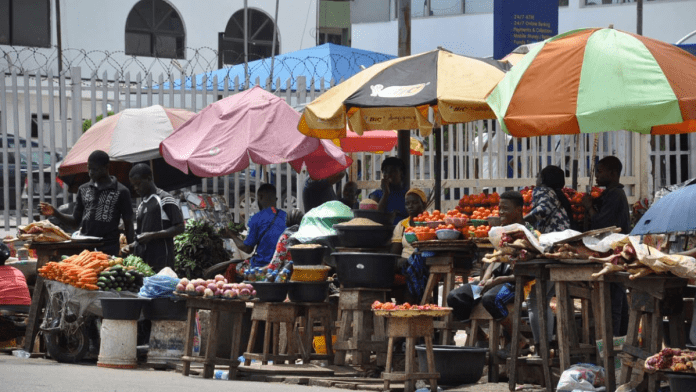News in brief:
â Nigeriaâs inflation rate rose to 28.92% in December 2023, marking the 20th consecutive month of increase, primarily driven by a 33.93% year-on-year surge in food costs.
â The report shows the significant economic challenges that citizens are facing, especially in regions like Kogi, Kwara, and Imo with the higher food inflation rates.
Nigeriaâs inflation rate reached a staggering 28.92% in December 2023, marking the 20th consecutive month of increase, according to data released by the National Bureau of Statistics (NBS).
The alarming figure represents a 0.72% point rise from Novemberâs 28.20% and a 7.58% point jump compared to December 2022.
The NBS report attributes the surge in inflation primarily to rising food costs, which climbed to 33.93% year-on-year in December, a significant 10.18% point increase from the previous year. Bread and cereals, oil and fat, potatoes, yam and other tubers, fish, meat, fruit, milk, cheese, and eggs all contributed to the spike in food prices.
Furthermore, the NBS report revealed that on a month-on-month basis, the Food inflation rate in December 2023 was 2.72%, 0.30% higher compared to the rate recorded in November 2023 (2.42%). This further underscores the accelerating pace of price increases for essential foodstuffs.
Meantime, the impact of this inflation is particularly acute in certain regions. Kogi, Kwara, and Imo states recorded the highest year-on-year food inflation rates, exceeding 39%, while Bauchi, Jigawa, and Sokoto experienced the slowest. On a monthly basis, however, Bayelsa, Ogun, and Enugu witnessed the most significant price hikes in food items, while Nasarawa, Delta, and Niger saw the least pronounced rises.
Overall, these figures paint a concerning picture of Nigeriaâs economic situation, with millions of citizens struggling to afford basic necessities. The Central Bank of Nigeria (CBN) is expected to take further action to curb inflation, potentially raising interest rates again in an attempt to stabilize the economy. However, analysts believe that balancing inflation control with economic growth remains a delicate challenge.



